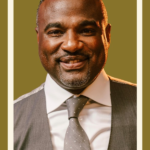Benioff: I’m looking at every single function and asking: how do we become an agentic enterprise?
Support is a great example. We’ve now done over a million conversations between customers and agents, and at the same time, there’s been about a million conversations between humans and customers. This has only been going on for six to nine months, and we’ve reduced our support cost by 17% so far.
The second piece is sales. We have so many leads that we can’t follow up on them all. Sales people basically cherry pick what leads they want to call back. Thousands of leads, tens of thousands of leads, hundreds of thousands of leads have never been called back. But in the agentic world, there’s no excuse for that. Every lead can be followed up on.
Fortune: With these efficiency gains, what is happening to the people who worked in customer support? Are they being transitioned to other roles, or are you shrinking the workforce?
Benioff: I’m constantly moving people around and reshaping the company. There’s a lot of scary narratives being planted by executives saying we’re getting big AI layoffs. But the thing about the AI we have—it’s not 100% accurate because it’s built on word models. Without our data set, these models are maybe 50% or 60% accurate. When you add in our data set, we’re getting 90% accuracy, but it’s not 100%. So you need the human in the loop. The humans are not going away. We’re being augmented by these technologies. We’re getting more productivity.
Fortune: You mentioned you’re not hiring engineers, support people, or even lawyers this year—only salespeople. What does this mean for younger people trying to enter these fields?
Benioff: We haven’t seen negative impacts play out. I think there are people doing a disservice to the psyche of business by saying things that may not be true. What I’m seeing is a lot more small and medium businesses, a lot more mid-market companies. There’s going to potentially be a lot more employment because everybody is augmented and has the ability to do more.
I think there’s going to be an explosion of small and medium businesses because they can do more, it’s easier to start one, you can create value more easily. We’re definitely seeing this in our business.
Fortune: How are you managing the transition internally when people need to move to new positions due to these efficiency gains?
Benioff: I don’t think it’s super complicated. We run something called Trailhead that we make available to customers and employees—you can get trained on all our products. We encourage all employees to do that, get certified, get badges, get trained. That gives them more mobility in the organization.
People need to be more flexible in their thinking. We encourage people to have a beginner’s mind. We tell them: with a beginner’s mind, you have every possibility. With an expert’s mind, you have a few. Which one is your choice? We have plenty of options. There’s nothing but opportunity. You can see all the open jobs we post externally and internally.
Fortune: There’s concern about AI leading to mass layoffs across the economy. Do you see that happening?
Benioff: I keep looking around, talking to CEOs, asking: what AI are they using for these big layoffs? I think AI augments people, but I don’t know if it necessarily replaces them. Even in radiology departments where AI can read scans, it’s not 100% accurate. The AI can read the scan, but it might get it wrong.
The reason is because a lot of this is still built on word models. Maybe there’s a future AI model that will be more accurate, but that’s not where we are right now. This is about humans and AI working together. I feel like I have a partner. But it doesn’t always get it right.
Fortune: Some worry that companies will create more of their own bespoke software using AI, potentially threatening traditional SaaS companies like Salesforce.
Apps will become more dynamic, where you’ll have the ability to dynamically generate apps. I’m seeing opportunities in that area, but we’re not at that point yet. Nobody can give me an example where someone has dynamically built an enterprise app out of AI. You can define an app in English now, which is exciting, but it’s still going to be built on a platform like ours with the same framework requirements.
Fortune: What’s your take on the current state of AI accuracy and capabilities?
Benioff: We need to be more real about what we have. We have this concept of intelligence coming out of these tokens, but it’s not that accurate. Users might have a model help them write a story, summarize it, edit it, translate it to Spanish or Arabic. And they’re like, “Oh, this is cool.” But at the end of the day, you’re still going to have to check it.
Every AI needs its own fact checker, and those fact checkers are humans, not AIs, because AIs can’t fact check because they don’t have that level of accuracy. The human has to stay in the loop.
Fortune: How do you see AI transforming different sectors?
Benioff: In healthcare, we don’t have enough doctors in small towns. There’s a company that spun out of Salesforce called Artera that has FDA certification for prostate cancer diagnosis and treatment plans. In our small town [where Benioff lives in Hawaii], we don’t have urologists or oncologists, so this can augment capability. It’s not a substitute for having specialists, but it can help.
In education, kids are using tools like Grammarly to write papers. But it’s not an excuse for teachers not to look at the Grammarly history to make sure kids are really learning. Education can be augmented, healthcare can be augmented.
But the burger shop, pizza shop, supermarket, dry cleaner, farmers market—a lot of the core of small towns probably won’t change that much. We’re probably not going to have any robotaxis around. No one’s going to get around to mapping our town for a while. This vision that we were sold that we’re just going to flip a switch and suddenly cars will start driving themselves, it turns out that wasn’t true. And I think that’s a good metaphor for what is going on in the AI industry more broadly. This is about humans and AI working together, not wholesale replacement of human beings.
Fortune: Tell me more about how you see that partnership between human and AI working?
Benioff: I think we are all augmented in our ability to do our jobs. I feel like I have a partner, right? So, for example, every year I sit down to write the Salesforce business plan—and we use this process we call V2MOM [Vision, Values, Methods, Obstacles, and Measures.] I always sit to do that with a Salesforce executive and now I also work with AI, as a Trinity. And I will say, okay, here’s my whole plan, give me a grade on it. And the AI will say ‘B plus’ But why is it not ‘A’? And it says, ‘Well, you left this out, right? You left that out.’ I’m like, ‘I did leave that out!’ It’s right. It’s very good, actually, at finding things that you’ve left out. So it’s good at finding gaps in your consciousness. I’ve been very impressed with that and it has altered my thinking a couple of times. But it’s you working with the system. AndI think that is a very empowering message for people and for enterprises. This is going to help your employees to be more productive and go forward faster. But it is not a wholesale replacement of human beings. Or if that opportunity exists, somebody needs to explain it to me, because, as the CEO of a 75,000 person company, I can’t figure it out.
Fortune: How does this change the way organizations are structured?
Benioff: It allows you to increase your span of control, reduce your layers [of management]. But people keep talking about how robots are going to wholesale replace departments. Where are these robots? Because I don’t see it. Sure, there are some robots out there—we’re going to have some at Dreamforce this year, walking around—but it is going to be very constrained, and it’s going to be somewhat limited, and it’s more about a vision for what’s possible over the long term. But let’s talk about where we are right now. And where we are right now is that every company can be an agentic enterprise but we have to keep the human in the loop.









